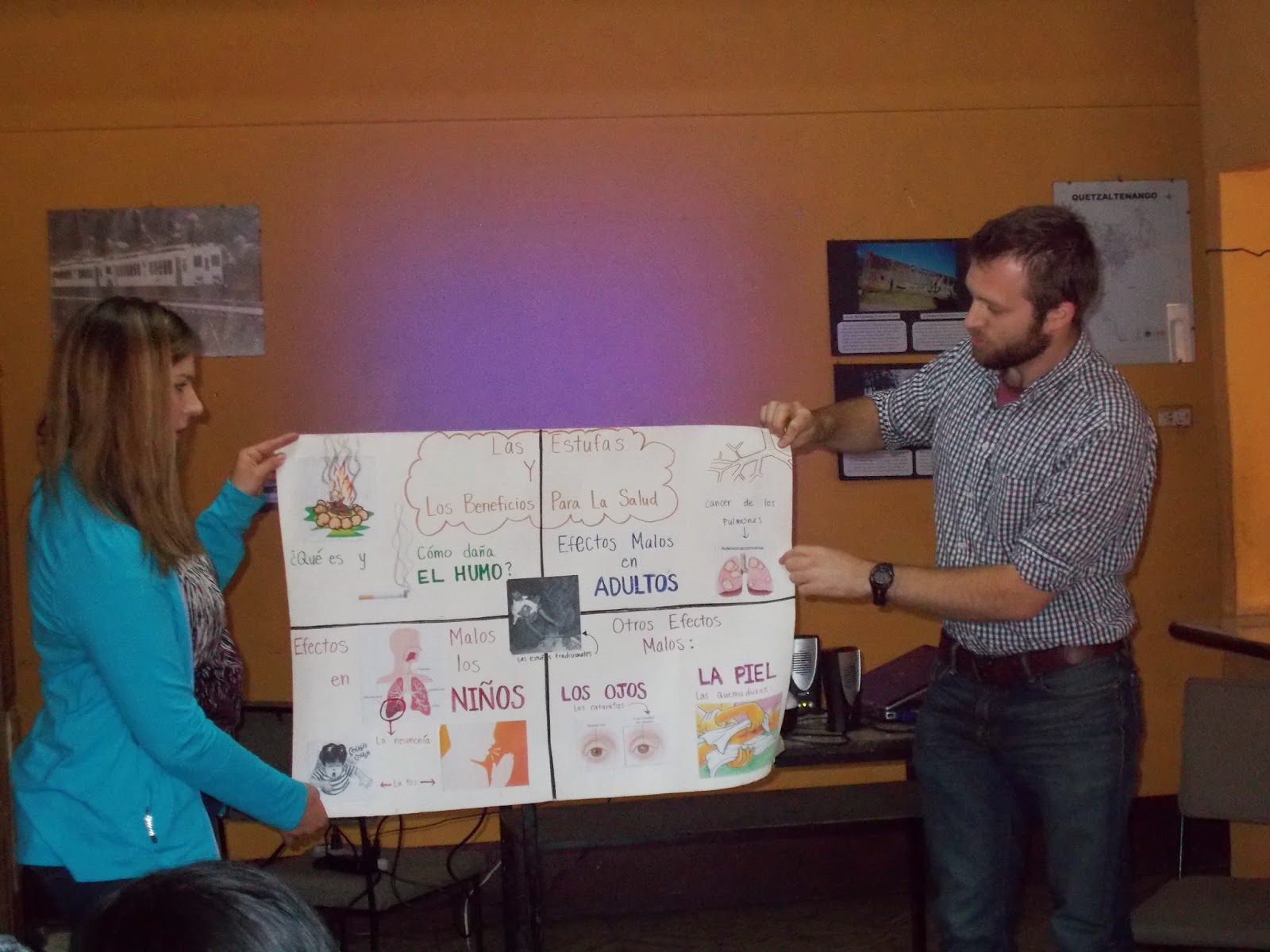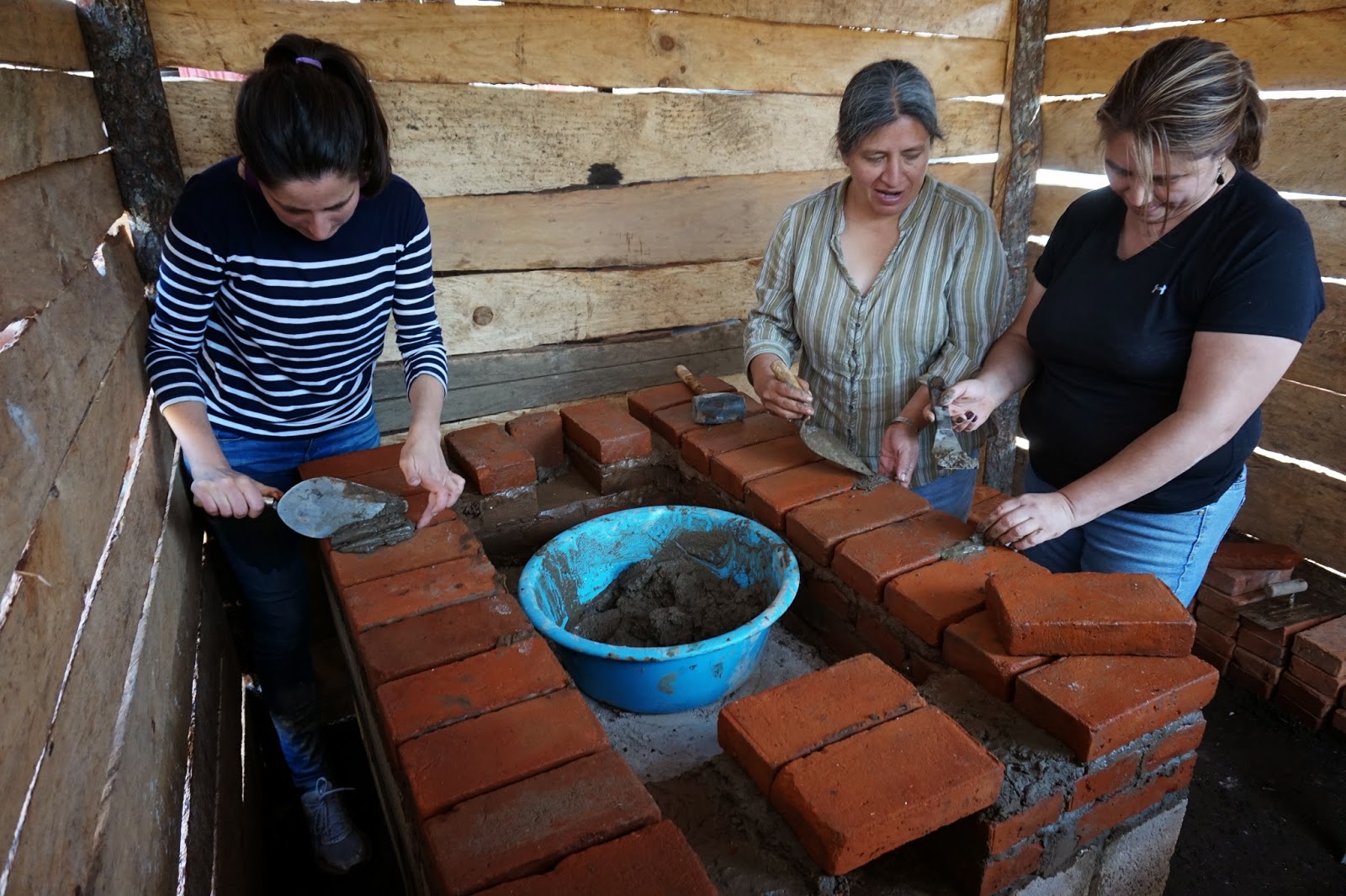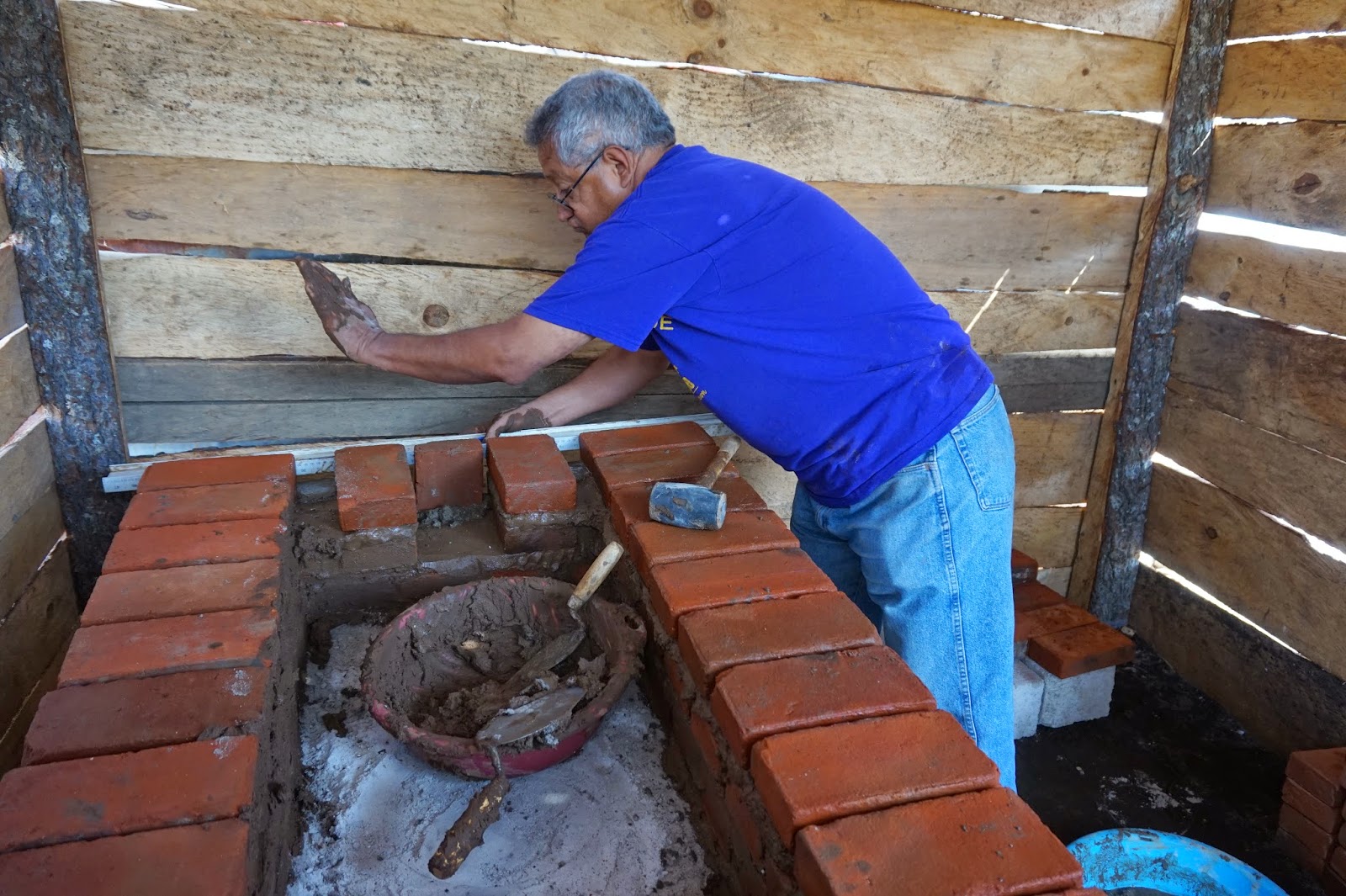In the past, family members of scholarship students would travel to Xela and meet individually with Carmen at Pop Wuj. This has become logistically difficult as the Scholarship Program and other projects have grown. Carmen is often not at Pop Wuj when families arrive because she has work in one of the rural communities. Often families arrive at 8am and have to wait for hours until Carmen sees all of the families who have come to meet with her. Encouraging families to call to confirm Carmen's schedule wasn't working and families were sometimes losing an entire day's work plus bus fare only to be told that they would have to come back when Carmen would be there.
Starting this month we are now holding monthly meetings at Pop Wuj for all of the scholarship families that do not live in one of our communities. We grouped all of these students and their families into the Xela scholarship group. Now the families of the students from Xela, the Pacific Coast, Momostenango, Cajolá Chiquito, Olintepeque, and non-Family Support Center families from Llanos del Pinal will meet each month as one group.
 |
| Carmencita speaks with Scholarship Program families at Pop Wuj |
An additional benefit will be that the group meeting format will allow families to become a support and resource for each other. We used this first meeting to get to know each other as a group. We discussed the value and strength of being part of a group and that they will be able to achieve more through organization than they could on their own. As Carmen said, "No one can cook the corn or beans with just one piece of firewood, but with many pieces of firewood we can."
During subsequent monthly meetings we will discuss a variety of topics, allowing the group to reflect and think collectively about the struggles they are confronting and possible solutions. For example, many families struggle with finding a way to balance the cultural/societal assumption that continued education is not as important as working and contributing to the family economy. We discussed weekend school options for older students as well as finding a way to manage the household expenses without relying on child labor.
We look forward to many more monthly meetings with our new "Xela" group!














.JPG)
.JPG)
.JPG)
.JPG)
.JPG)










